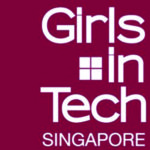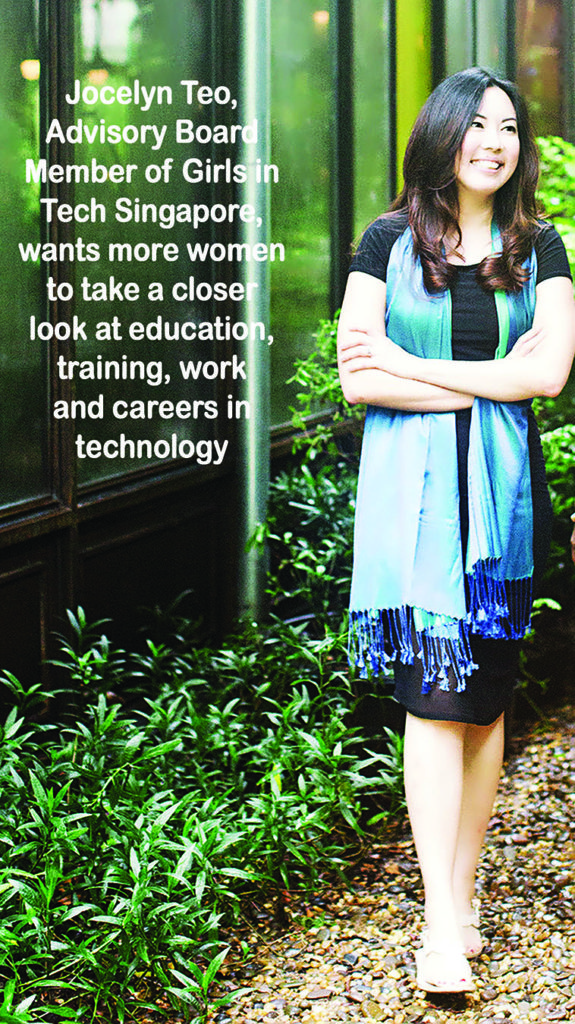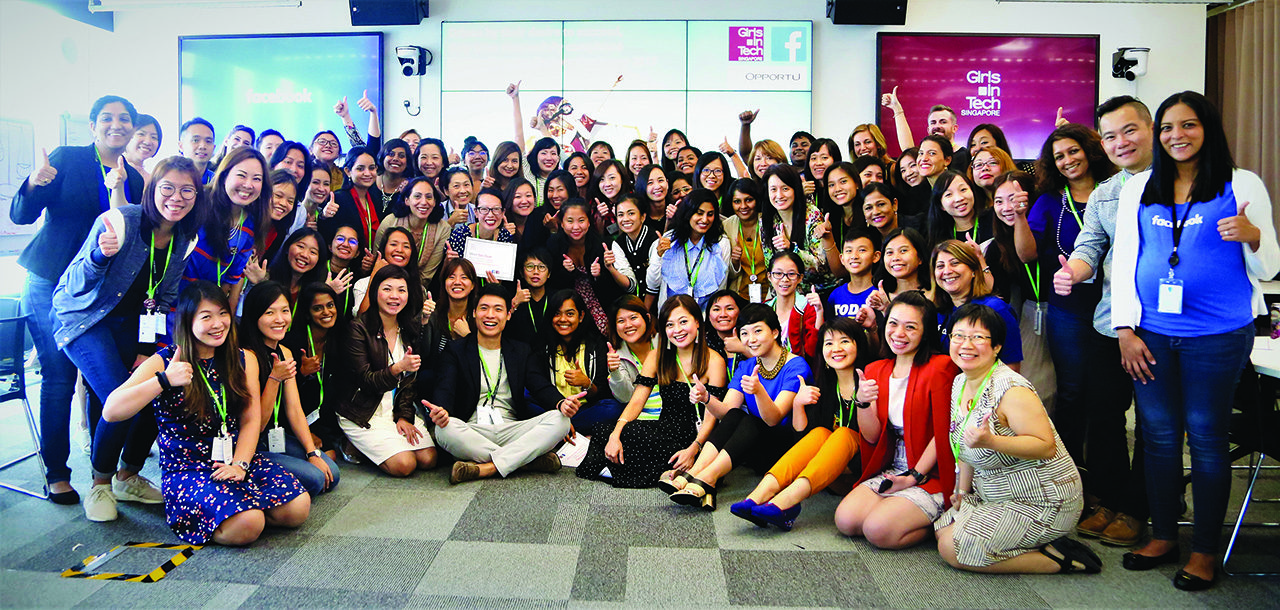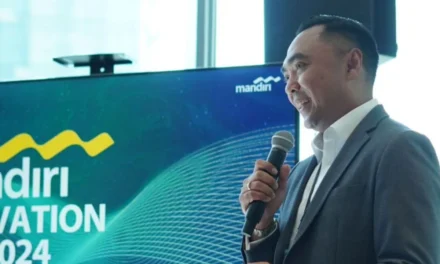
Girls in Tech (GIT) is a global non-profit organization focused on the engagement, education and empowerment of influential women in technology.
For more info:
singapore.girlsintech.org
www.facebook.com/GirlsInTech/
 1. What is the current status of women in tech fields, are they well represented in terms of numbers compared to men? We believe they are not as many as men. Is this true? Why should it not be a ‘natural fit’ for women and what are the reasons you think stopping more women from joining the tech industry?
1. What is the current status of women in tech fields, are they well represented in terms of numbers compared to men? We believe they are not as many as men. Is this true? Why should it not be a ‘natural fit’ for women and what are the reasons you think stopping more women from joining the tech industry?
JT: I believe that the concept of “natural fit” is mostly attributed to the cultural perceptions and norms rather than the gender differences bestowed to us by Mother Nature. Stereotypes and unconscious bias, cultural perceptions and societal attitudes all play a part in the setting of barriers for women in tech.
2. What is the range of jobs available in tech. Are there any positions that would give women an edge or advantage over men or that would be a disadvantage for women compared to men?
JT: Today, tech jobs are no longer confined to the usual computer programming IT-based job profiles. There are a multitude of job options in the tech world today that utilizes a diverse range of skillsets, from programme management, pre-sales, product development to data scientist, graphic designer for user experience. Even non-tech industries are getting a tech overhaul these days. As conventional industries move towards the Industrial 4.0 era, the need to innovate, create and enhance productivity is paramount to the profitability of the company, and companies will be pushed towards having a workforce that is geared towards tech in order to continue growing. I strongly believe in 50/50. A well-crafted solution, a profitable product or a customer-oriented service can only be so if it is supported, created and decided by a diverse set of minds. Studies have shown repeatedly that companies that are inclined to a 50/50 representation in their decision-making process are more profitable. So I do not subscribe to the belief that a woman or a man is more suited for a job. Both genders bring something worthy for consideration to the table.
3. You have worked in the US, in Silicon Valley itself. How did you end up there, doing what and what did you learn there about women in tech field that can be applied in Singapore?
JT: Long story short, I started off in R&D in a very niche field in semiconductors. Opportunity came knocking for me one day to join the world’s largest foundry in Taiwan as a R&D engineer. I grabbed that opportunity as I had (and still have) a huge passion in the advanced technology that drives our world. I then moved on to other roles in the same company like product engineering and was then relocated by the same company to their North America office in Silicon Valley. I was managing the account of one of the company’s largest customers, helping them with their advanced technology roadmap and supporting their product and business needs.
One thing that I learnt when I was there was to never be afraid to “sit at the table”. Many a time, we Asian women unconsciously choose to be at the sidelines. Women cannot expect to be heard or be taken seriously if we self-relegate ourselves to the sidelines and not speak out. Of course it may not be that easy or simple as often an “assertive” woman is seen as “aggressive” and viewed in a negative light. So there is a balance we need to be mindful of here.
4. Tech and IT is very specialised in terms of education / training and expertise so is it a field that one must choose very early on in life or can women after leaving school or university switch professions to join? Is there a certain ‘type’ of personality or character traits that make them more suitable for jobs in tech?
JT: IT is a specialized field. Tech however, may not be as specialized as we think. As mentioned earlier on, there are different skillsets needed in tech. I also believe in choosing a field that one has passion or interest in. That spark will be what keeps you going when the going is tough. And also be prepared to adapt to the changes in the macro environment. We need to play to our strengths, leverage our talents, and exploit that passion we have in tech. There must also be open-mindedness to changing our paths along the way and not be afraid of steep learning curves. Again, I am of the firm belief that gender has nothing to do with what one can or cannot do. Passion and talent combined with opportunities play a more significant role in one’s suitability for jobs in tech (as opposed with personality or character or traits). I once read an article by a female race car driver with a headline that says “The car doesn’t know if I’m a man or a woman, and it doesn’t care”.
5. In the Singapore context what is the work currently in demand in the field of tech and are the skills also highly in demand in overseas markets and where are the best jobs found?
JT: Jobs related to tech trends like Artificial Intelligence, machine learning, big data, user experience are widely in demand these days both in Singapore and internationally as the world gears towards Industrial revolution 4.0 where changes are fast occurring in how people connect, live and work together. Conventional fields like engineering and manufacturing has always been a stronghold in Singapore and is in demand to drive growth in those areas. Software is still popular these days and so are social media platforms. But remember that these can change rapidly based on the demands of humankind, hence it is vital to stay nimble and mindful of the changes and adapt accordingly.
6. In September SLUSH will be staged in Singapore and how will Girls in Tech be taking part? In what fields or areas of business you think women can participate in SLUSH or benefit from attending it?
JT: SLUSH is a well-established event to showcase startups to potential investors and is a great place for like-minded entrepreneurs to meet and network. Girls in Tech Singapore has no current plans to take part in SLUSH this year, but we wish this event a great success as it contributes to the vibrant startup scene we have in Singapore! I think any woman who is currently running her own business and wants to take it to greater heights or someone who has an idea or solution or product that she wants to bring to market successfully should definitely consider events like SLUSH.
7. Is SLUSH suitable for women business owners to tap into for a technological edge e.g. if you are a beauty salon owner or run a food stall and have ideas how tech can be employed to raise productivity etc. Is this the place to go?
JT: I believe a setting like SLUSH could be a space for people to exchange ideas for their current business whatever their product/services may be.
8. For Tech entrepreneurs, who are the women who lead or own their own companies (probably SMEs)? Are there many here and can you quote success stories and the women behind them to illustrate what is possible in the tech field?
JT: Being a board member of Girls in Tech Singapore has enabled me to get to know many awesome women founders and industry leaders in Singapore. In June this year, we are collaborating with Facebook on a Startup Success Factor Bootcamp where participants will get to take away tangible skills from leadership, ideation, crafting a business model, and pitching it to raise capital funds. Participants will be closely mentored by mentors who are founders, entrepreneurs and leaders in their own respective fields so that they can share their own experiences during the bootcamp. We hope to inspire aspiring or current women entrepreneurs! Some of our mentors in this bootcamp are featured in our blog, and their success stories can also be found here:
https://singapore.girlsintech.org/#blog
We are constantly inspired by these ladies such as Janice Chia, she is the Founder & Managing Director, Ageing Asia Pte Ltd, Singapore – Asia’s first ageing market consultancy social enterprise; Tegan Watson is the Chief Operating Officer and Co-Founder of Senescence Life Sciences which is a biotechnology leader in brain health, its mission is to leverage the latest advances in neuroscience to create innovative products designed to protect and preserve brain function.


Some members of GIT in the recent Startup Success Factor Bootcamp in Facebook Singapore (pictured above) and you can also read and be inspired about Jacqueline & Melissa (pictured from left to right resp) from Delegate at https://singapore.girlsintech. org/2017/06/12/be-inspired-by-delegate-co-founders-melissa-lou-and-jacqueline-ye/
Forbe’s List of Wealthiest American Women in Tech
In May this year Forbes staff writer Kate Vinton compiled 11 of the richest self-made women in tech in the magazine’s third annual list which showed seven are CEOs, five founded their own companies and three are billionaires (some hold two of these titles). Together, Vinton wrote these 11 women are worth a combined US$10.3 billion. The richest was Meg Whitman who is HP Enterprise CEO, who has a $2.5 billion fortune. The bulk of her fortune came from her stint as CEO of eBay. Before eBay, she was an executive at Walt Disney and Hasbro. She is the richest self-made woman in America who is not the founder of her own company.
Next two are female tech billionaires, Facebook Chief Operating Office Sheryl Sandberg and SHI International CEO Thai Lee, each have a $1.6 billion fortune. Miss Vinton pointed out that Whitman, Lee, Sandberg and the other women in the tech list are “a rarity in the technology sector, which has produced a tremendous amount of wealth – but mainly for men.”
Others in the list includes YouTube’s CEO Susan Wojcicki, with an estimated $410 million fortune, who had published an article in Vanity Fair titled “How to Break Up the Silicon Valley Boy’s Club,” discussing sexism in tech and steps companies can take to support women. Wojcicki said the number of women at YouTube had increased from 24% to 30% since she became CEO in 2014. Then there is Yahoo’s CEO Marissa Mayer. Mayer, Sandberg and Wojcicki all had worked together at Google early in their careers. Mayer has a $540 million fortune, the bulk of which comes from her time at Google. Next is Oracle’s co-CEO Safra Catz who is an 18-year Oracle veteran with an estimated fortune of $670 million.
More than half of these women made their fortunes as executives at companies they didn’t start, only five founded their own tech companies. Lee is the only billionaire female founder in tech. The other four founders are Weili Dai (net worth: $770 million), cofounder of Marvell Technology Group; Neerja Sethi (net worth $750 million), cofounder of IT consulting and outsourcing firm Syntel; Adi Tatarko (net worth: $300 million), co-founder of home design startup Houzz; and Lynda Weinman (net worth $280 million), founder of online education platform Lynda.com. To read the full article visit: https://www.forbes.com/sites/katevinton/2017/05/17/meet-americas-richest-self-made-women-in-tech/#4dd7e1ae5a94








